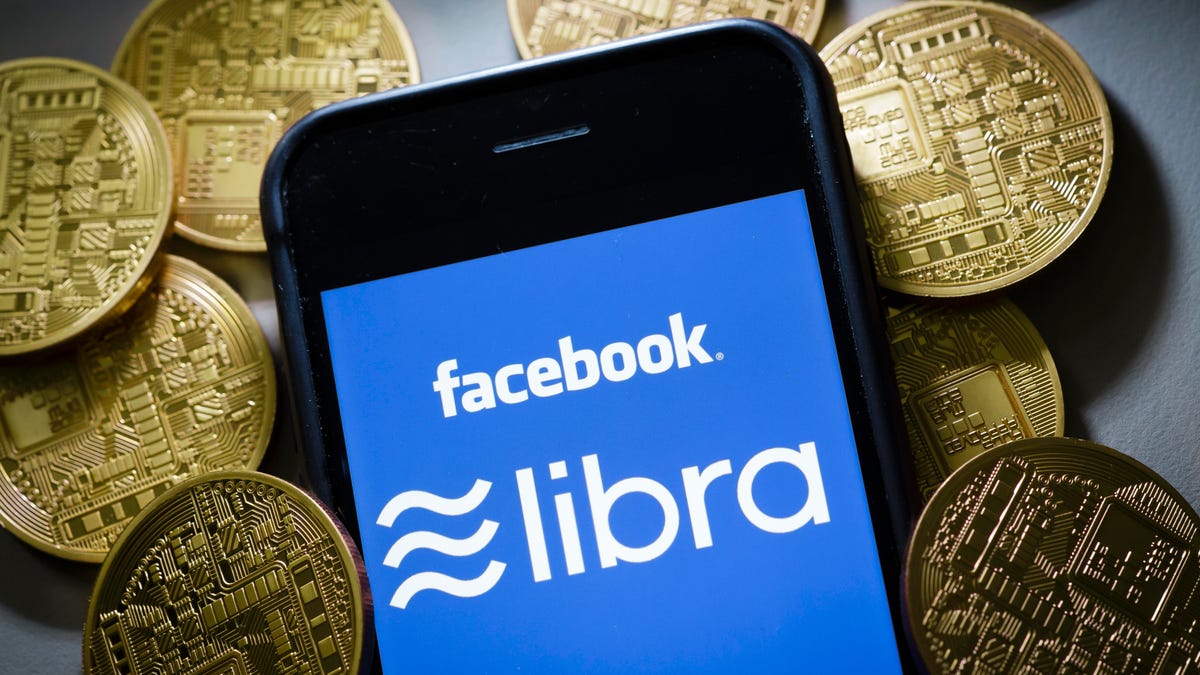Zuckerberg explains how Libra could help Facebook make more money
The new cryptocurrency hasn't launched yet, but has faced regulatory scrutiny.

Facebook and its partners had plans to launch Libra in the first half of 2020.
Facebook CEO Mark Zuckerberg on Wednesday explained how the launch a new cryptocurrency called Libra could help the social network rake in more ad dollars.
During the company's annual shareholder meeting on Wednesday, Zuckerberg was asked how Facebook will make money from Libra, which hasn't launched yet. Introducing a a new cryptocurrency and other tools such as online shops will make commerce more effective for businesses and in turn result in higher ad prices, which benefits Facebook financially, Zuckerberg said.
That's because Facebook doesn't sell ads for a set price. Instead, businesses bid for the price of an ad based on the results it's trying to achieve, he said. Facebook allows advertisers to target ads based on age, location, interests and other characteristics.
"When they run an ad, somebody (who) clicks on that ad is now going to be more likely to buy something because they actually have a form of payment that works that's on file then it basically becomes worth it more for the businesses to bid higher on the ads and what we see are higher prices for the ad overall," he said.
Zuckerberg's remarks provides more detail about the company's strategy around launching new payments and e-commerce features. Facebook and its partners have promoted Libra as a way to help people who don't have access to financial services or have to pay high fees to send money overseas. But it's clear that the social network thinks it can also benefit financially from Libra too even as it faces increased regulatory scrutiny from lawmakers. Companies such as Shopify, Uber, Lyft and Spotify are part of the Libra Association overseeing the new cryptocurrency. Other initial partners such as PayPal, eBay, Visa and Mastercard withdrew from the association.
Facebook has also been working on a digital wallet to store the cryptocurrency, which was rebranded this week as Novi after formerly being called Calibra. Earlier this month, the Libra Association also said that Stuart Levey, the chief legal officer of HSBC, will serve as its first CEO.
Libra was expected to launch in the first half of 2020, but it's unclear what the status of the project is at this point. The Libra Association didn't immediately respond to questions about when the new cryptocurrency will launch.
On Wednesday, Facebook's shareholders also put forth eight proposals, including efforts to rein in Zuckerberg's power and postpone the company's plans to end-to-end encrypt messages on its messaging services by default, including on Messenger and Instagram. The plans have raised concerns that it would make it harder to combat child exploitation because even Facebook can't read the encrypted messages. As expected, all eight proposals were rejected. Zuckerberg has majority control over the company because he owns a class of stock with more voting power.
During the meeting, Zuckerberg answered various questions including how the company approaches content moderation. This week, Facebook left up a post by President Donald Trump that included misleading claims that mail-in ballots "will be anything less than substantially fraudulent," a claim that has been debunked by fact-checkers and news organizations. Twitter added a fact-checking label to Trump's tweets, but Facebook typically doesn't send posts from politicians to fact-checkers. At the same time, Facebook also faced criticism during the shareholder meeting that it doesn't do enough to pull down hate speech that violate its rules.
"Figuring out exactly the nuances of getting this right is an area where broadly people across society do not agree on the right way to address this," he said.
Facebook held its annual shareholder meeting on the same week that a whistleblower's complaint against Facebook was filed to the US Securities and Exchange Commission. The Washington Post, which obtained a copy of the complaint filed late Tuesday, reported on Wednesday that Facebook insiders and critics say the social network has failed to combat illegal activity including the sales of opioids and other drugs.

